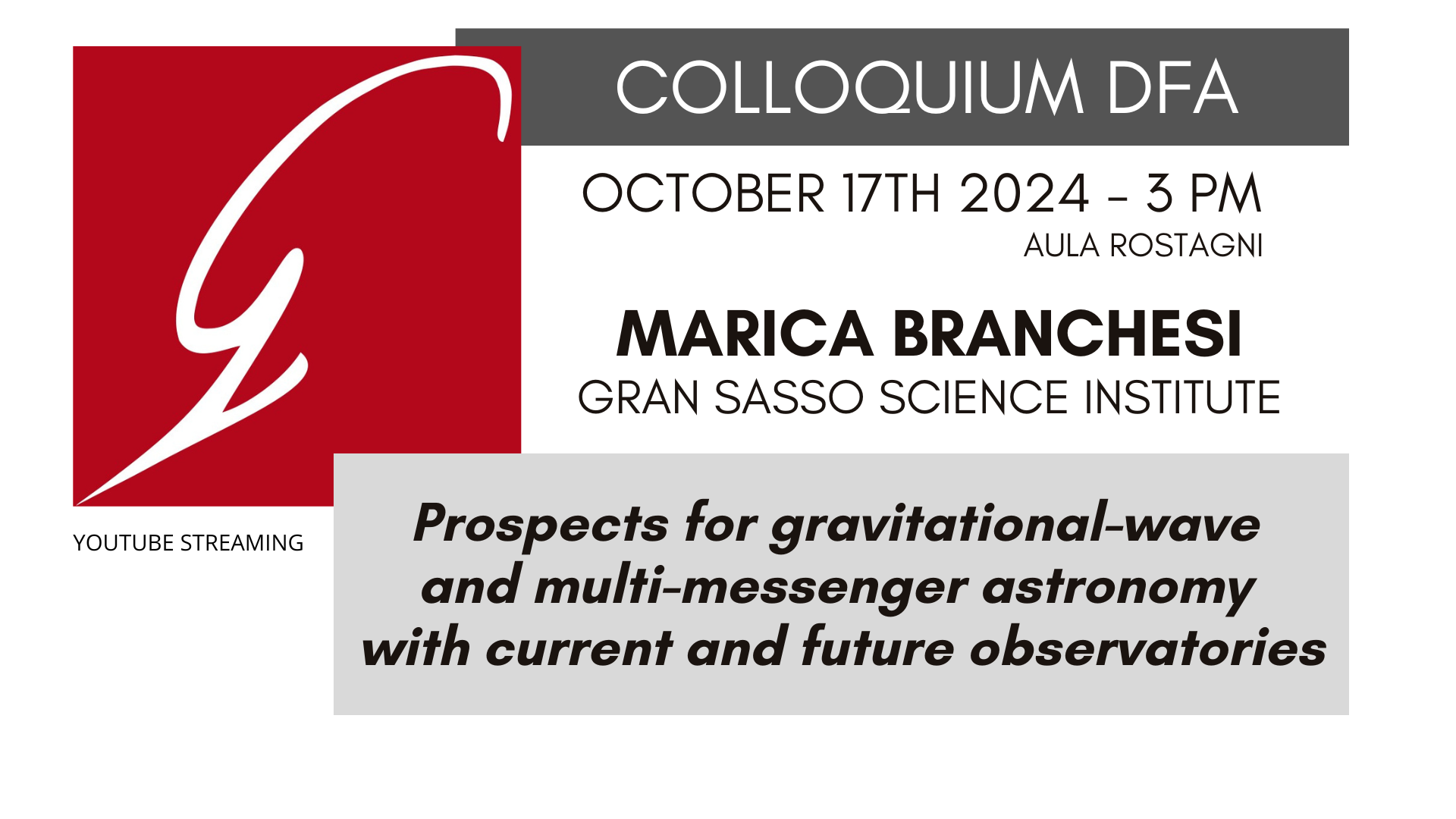Colloquium October 17th - "Prospects for gravitational-wave and multi-messenger astronomy with current and future observatories"
by
1/1-1 - Aula "A. Rostagni"
Dipartimento di Fisica e Astronomia - Edificio Marzolo

Speaker: Marica Branchesi
Affiliation: Gran Sasso Science Institute
Date: October 17th, at 3 PM
Where: Aula Rostagni and Youtube streaming
Abstract: A new exploration of the Universe has recently started through gravitational-wave observations. On August 17, 2017, the merger of a binary neutron-star system observed through gravitational waves and multi-wavelength emissions, from gamma rays, X-rays, ultraviolet-optical-near-infrared, and radio, marked the history of multi-messenger astronomy, showing its enormous potential in probing the physics of the most energetic events in the Universe. Multi-messenger observations are a unique tool to unveil the rich physics of neutron star mergers in association with gamma-ray bursts and kilonovae, to probe relativistic astrophysics, nuclear physics, nucleosynthesis, and cosmology. Starting with the current status of gravitational-wave observations, the talk will give an overview of challenges and perspectives of gravitational-astronomy expected with the next generation of gravitational-wave detectors, such as the Einstein Telescope.
Marica Branchesi is Full Professor of Astrophysics at the Gran Sasso Science Institute and Corresponding Member of the Accademia dei Lincei. She is a member of the Board of Directors of the Italian Space Agency and of the Scientific Advisory Committee of the AstroParticle Physics European Consortium. She is an associate researcher at the National Institute for Astrophysics and the National Institute for Nuclear Physics. She is the coordinator of the Einstein Telescope Observational Science Board that develops the science of the third-generation gravitational wave detector. She was included by the journal Nature in the annual list of the ten people who have had the greatest impact on science in 2017.
Youtube streaming: https://www.youtube.com/@UniPadovaAulaRostagni
Prof. Elisa Bernardini
